Once again, we are back with the conundrum that we have no idea how much we don’t know about posters. Although I suspect there are vast unsuspected continents of ignorance out there in the darkness.
One small portion of it popped its head above the parapet before Christmas, when these two posters appeared on eBay.
They are the work of one Freddie Reeves, and were being sold by his descendents, along with this poster, which we infuriatingly missed because our bid failed to register, something I am still smarting about.
But enough of that (although, honestly, we’ve missed so much stuff recently that I could fill a whole blog post on that subject alone) and back to the Careless Talk posters, the likes of which I have never seen before. A rummage around on Google, does throw up this, though, which is artwork from the National Archives and clearly related.
It’s just as much of a surprise as the others, and I’ve certainly not seen it illustrated anywhere apart from the National Archives. Mostly, I think this is down to the fact that the Home Front posters were never fully documented at the time, and so it will never be possible to produce a full catalogue. There will always be ones like these that pop up out of nowhere to surprise us.
But I also think – and I am as guilty of this as the next person – that we tend to go for the obvious thought. So when we think of Coughs and Sneezes Spread Diseases, our brains immediately serve up a Bateman.
Whereas actually that slogan came in many different styles, both before and after the war.
And thus it is with Careless Talk as well; the slogan is so intimately linked with Fougasse that it’s hard for us to imagine any other posters, but they did exist. As these two examples show.
The only clue that these ones give us is that they were printed in Manchester, which isn’t something I’ve ever seen before on a World War Two poster. So was this some kind of local campaign? Funded by someone other than the MoI? I can only conjecture.
As far as I can tell, Freddie Reeves only did a couple of other posters, on a similar topic as it turns out.
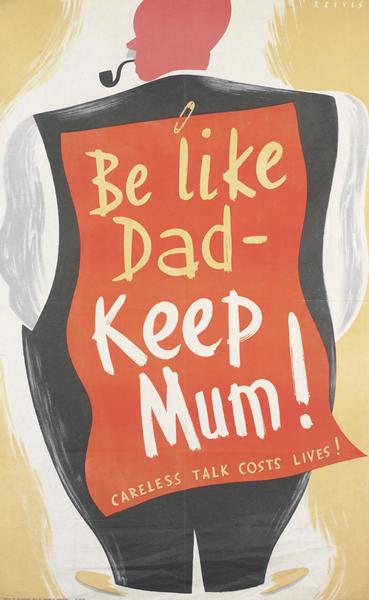
But that’s not to say that there aren’t other ones out there, it’s just that we don’t know about them yet.
What’s also interesting about the posters that we bought is that they are tiny, seve and a half inches by five inches. And yes, we were a bit surprised when they came out of the envelope that size, which will teach us to read eBay listings properly. But, again, I’ve never come across a World War Two poster that small before. There are GPO posters that are nearly that small, like this Beaumont for example.
But even these are six inches by nine, and thus a different format. So the Careless Talk posters weren’t designed for those GPO spaces. I wonder where they were meant for? Perhaps the corner of shop windows, although I can’t prove that. From which I am driven to conclude that, particularly where World War Two Home Front posters are concerned, we will never know anything like the full story.
The eBay listing also said of Freddie Reeves:
He was a graphic artist during the 1940’s, 1950’s, 1960’s and 1970s’s. He did a lot of work for Good Housekeeping, Barkers, Morleys and some well known WW2 posters.
So where are all those other illustrations and posters then? Where is the work of Freddie Reeves in the history books? And how would we ever know he had been missing, were it not for the fact that one of his descendants sold a few last remaining pieces on eBay? This bothers me, it really does. Because how many other designers were out there, producing good stuff, and whose work we will never ever know because we have no idea that we are even meant to be looking out for it?
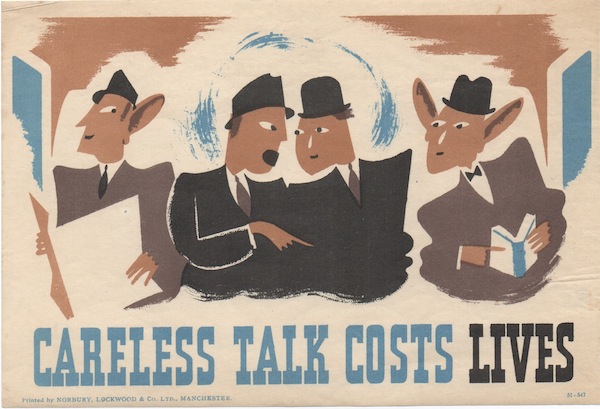
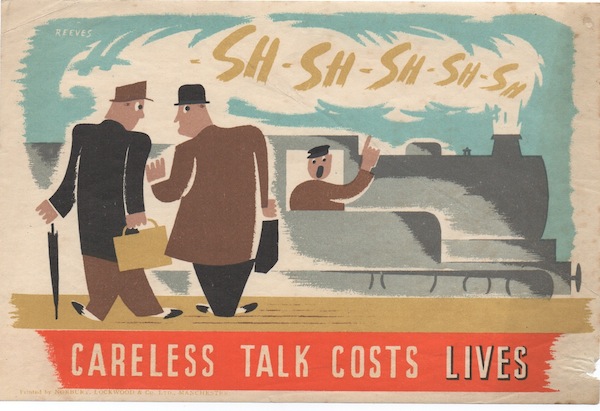

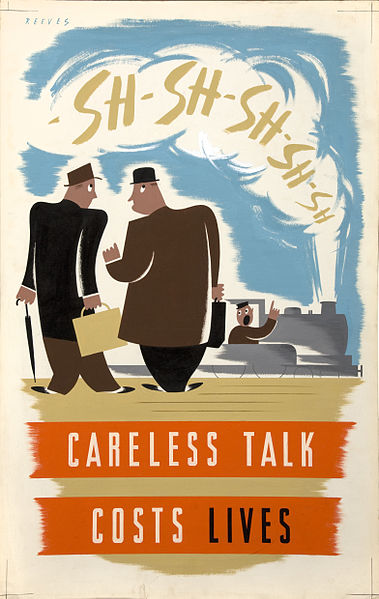
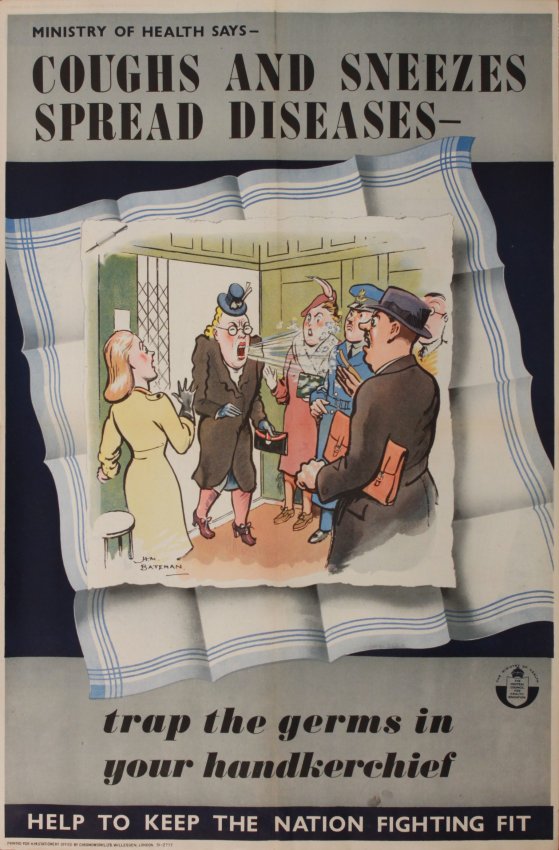
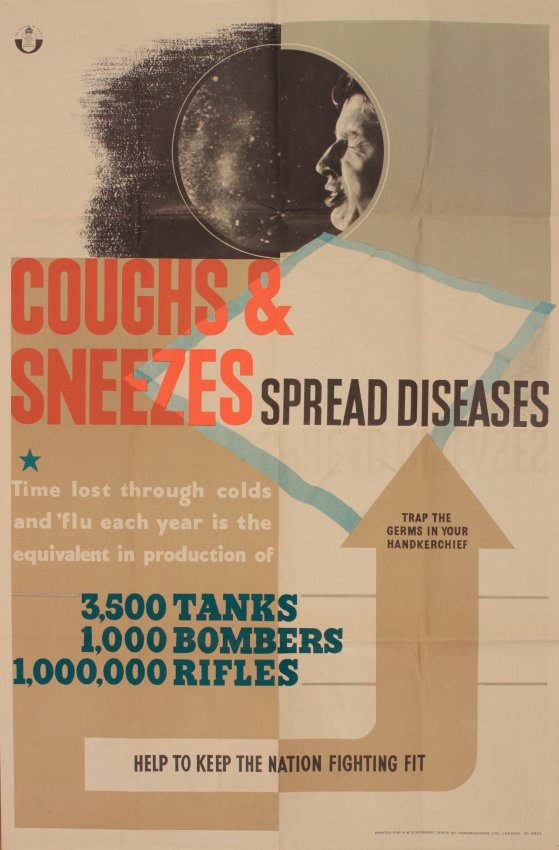

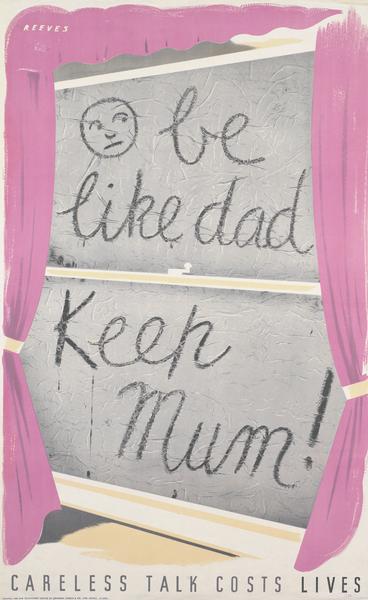
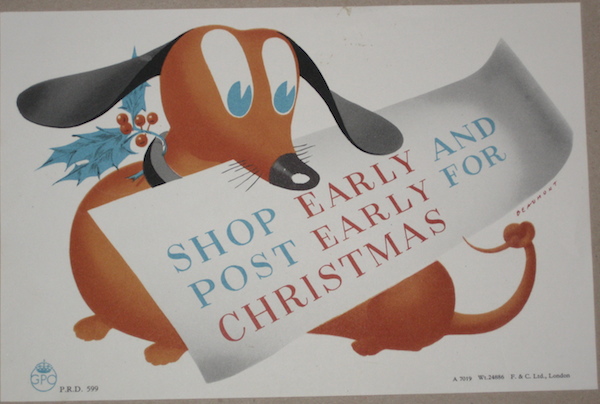
They’re lovely. Looking at the subject matter, couldn’t they have been done for tube or overground trains? End of carriage type posters?
They might have been, although they are so teeny weeny that they’d have been hard to see.
But what you have made me realised is that they are – in a way – a standard poster size as they are a quarter of a 10 x 15 Crown Folio. So is this an attempt to get more posters out of standard paper and/or printing machines? But where they were put I do not know.
Ah, so they went to you; given the size I wasn’t prepared to pay as much as you were! Glad you have now managed to publish the information for posterity – IWM etc. don’t even know his Christian name.
You didn’t buy the Vanity Fair one then, did you? I’m still cross about that one, although not quite as cross as I am about the Lander we missed at GWR.
Not guilty, Guv.